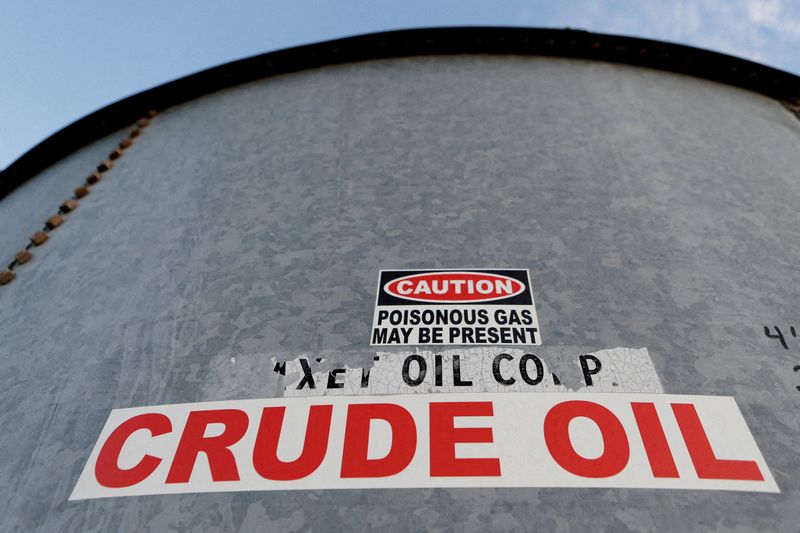By Laila Kearney
NEW YORK (Reuters) -Oil edged up on Tuesday, reversing an early decline as worries about tightening supply were revived after Russia said oil exports to Europe on the southern leg of the Druzhba pipeline had been suspended since early August.
Russian pipeline monopoly Transneft said Ukraine had suspended oil flows via the pipeline leg because Western sanctions had prevented a payment from Moscow for transit fees from going through.
“Not that we need it at this point, but it’s another reminder of how tight the market is and how sensitive the price is to supply disruptions, particularly those from Russia,” said Craig Erlam of brokerage OANDA.
Brent crude was up $1.01 cents, or 1.1%, to $97.66 a barrel at 11:30 a.m. EDT (1503 GMT), a sharp rebound from the session low of $94.90. U.S. West Texas Intermediate (WTI) crude gained 75 cents, or 0.8%, to $91.51 a barrel, bouncing from the session low of $89.05.
Oil also got a boost from a weaker U.S. dollar. The dollar index, which measures the currency’s value against a basket of peers, was 0.23% lower at 106.09 at 10:25 a.m. ET (1425 GMT). Traders awaited a U.S. inflation report on Wednesday.
Until the Druzhba news, mounting fears that a recession could cut oil demand had offset support for crude prices from tight supply and progress in talks to revive the Iran nuclear accord.
“Early selling had been prompted by a renewed prospect of Iranian nuclear discussions that could eventually facilitate resumption of oil exports out of Iran,” said Jim Ritterbusch, president of Ritterbusch and Associates LLC in a note, but added that he considered an imminent deal unlikely.
The European Union on Monday put forward a “final” text to revive the 2015 Iran deal https://www.reuters.com/world/middle-east/irans-nuclear-negotiators-return-tehran-vienna-irna-2022-08-08. A senior EU official said a final decision on the proposal, which needs U.S. and Iranian approval, was expected within “very, very few weeks”.
Talks have dragged on for months without a deal.
Iran’s crude exports, according to tanker trackers, are at least 1 million barrels per day below their rate in 2018 when then U.S. President Donald Trump exited the nuclear agreement, so an agreement could allow a sizeable boost in supply.
On Friday, Brent fell as low as $92.78, its lowest since February, as the Bank of England’s warning on Thursday of a drawn-out downturn increased expectation of lower fuel use. Earlier in the year, oil soared as Russia’s invasion of Ukraine fed supply concerns. Brent hit $139 in March, close to its all-time high.
Coming into view is the latest round of weekly U.S. oil supply reports, firstly from the American Petroleum Institute at 2030 GMT. Analysts expect a small 400,000-barrel drop in crude inventories. [EIA/S]

Source:reuters

